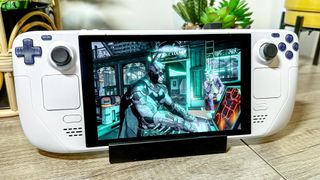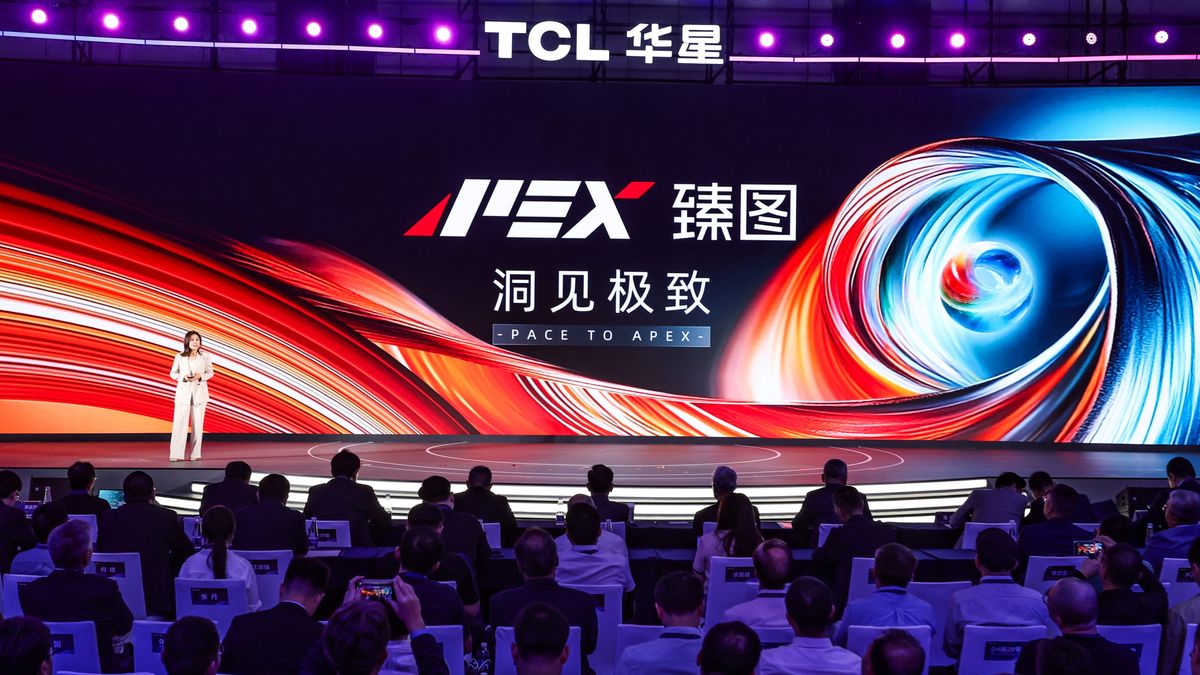An interview from Australian publication Reviews.org is making the rounds on the internet today because of some interesting quotes by Valve employees Lawrence Yang and Yazan Aldehayyat in which they reiterated that the Steam Deck will not have yearly iterations.
It is bot h interesting and not really a surprise considering that in an interview last year with Rock, Paper, Shotgun, Yang said essentially the same thing. At the time, he said that a Steam Deck sequel "wouldn't be for a few years."
The Steam Deck sits in a strange place where it straddles the line between a console à la the Nintendo Switch (which should see the Nintendo Switch 2 launch next year) and a gaming PC. The difference between the two is that consoles, typically, have never come out on a yearly cadence.
It's been four years since the PS5 was launched in 2020, and since then we've only seen iterative adjustments like the smaller PS5 Slim that hit shelves last year and the hugely expensive PS5 Pro that was just announced. Xbox and Nintendo, meanwhile, have only added more storage or swapped in a larger OLED display (no, we aren't forgetting the Nintendo Switch Lite).
We’re not going to do a bump every year. There’s no reason to do that
Lawrence Yang, Valve designerMeanwhile, PCs come out at the same cadence as smartphones, sometimes with two different versions hitting in the same year such as the Copilot PCs that launched with Qualcomm's Snapdragon X elite chips that are now getting Intel Lunar Lake variants this fall.
It depends on your lens. If the Steam Deck is a gaming console, then a non-yearly cadence makes sense. If you view it as more of a new PC then perhaps there is an expectation for something more yearly.
“It is important to us, and we’ve tried to be really clear, we are not doing the yearly cadence,” Yang told Reviews. “We’re not going to do a bump every year. There’s no reason to do that. And, honestly, from our perspective, that’s kind of not really fair to your customers to come out with something so soon that’s only incrementally better."
Yang said that we probably won't see anything until there is "a generational leap in compute without sacrificing battery life."
Who Has the Best Handheld Console? | Steam Deck OLED vs ASUS ROG Ally - YouTube

"Obviously we'd love to get even more performance in the same power envelope, but that technology doesn't exist yet," Aldehayyat added. "That's what I think we'd call a Steam Deck 2.0."
"The first Steam Deck was the first moment in time where we felt like there was enough GPU performance in a portable form factor that lets you play all your Steam games," he added. "We would love for the trend of perf-per-watt to progress rapidly to do that, but it's not quite there yet."
They did confirm that some version of a Steam Deck 2 is in development, but that cat's been out of the bag for some time. Still, we might not see that device for at least two to three more years.
In the meantime, a number of competitor handheld gaming PCs have popped up in response to Valve's success with the Steam Deck. Most of those (unlike the Steam Deck) are Windows machines, like the newly updated Asus ROG Ally X, which provides a great experience with lackluster battery life.
Additionally, Valve may see some competition from Xbox and Sony as both are rumored to be working on their own handheld gaming devices that should launch with the next generation of consoles.
More from Tom's Guide
- Snapdragon 8 Elite unveiled — here's how Android phones could blow away the iPhone 16
- 'I can hear sounds I never knew we're there' — my friend with hearing loss just tried the hearing aid feature on AirPods Pro 2
- Prime Video top 10 shows — here's the 3 worth watching now















)





 English (US) ·
English (US) ·